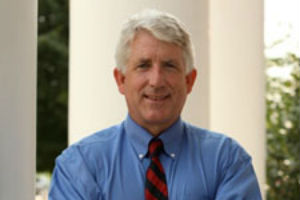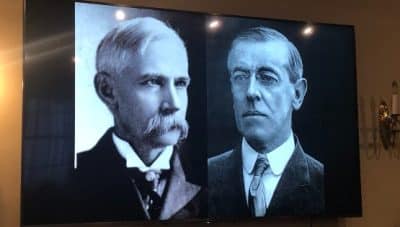
Under the Trump Administration, the EPA has attempted to roll back the Clean Car Rule, roll back important protections from harmful greenhouse gas emissions, roll back the Clean Power Plan, and block state-level action to reduce air pollution from cars,
“The Trump Administration has made it blatantly obvious that they are not concerned about doing anything to fight climate change in this country. In fact, they are doing the exact opposite by working in favor of fossil fuel companies,” said Herring. “In Virginia, and especially in Hampton Roads, folks are already seeing the devastating, irreversible effects that sea level rise and climate change can have on communities and it’s only going to get worse if we don’t put critical protections and regulations in place. My colleagues and I do not trust that the current EPA will adequately and strongly defend their authority to protect clean air, which is why we have asked the court to let us step in and defend.”
Herring and his colleagues have filed suit against the EPA over its “Dirty Power” rule, which allegedly violates the Clean Air Act and will have almost no impact on reversing climate change. The EPA’s proposed rule, the “Affordable Clean Energy” – aka the “Dirty Power Plan” – replaced the Clean Power Plan, the first-ever nationwide limits on existing fossil-fueled power plants, one of the largest sources of climate change pollution. The EPA’s rule rolls-back these limits and will have virtually no impact on these emissions, prolonging the nation’s reliance on polluting, expensive coal power plants and obstructing progress of states toward clean, renewable, and affordable electricity generation.
While the coalition contends in their lawsuit that the “Dirty Power Plan” rule change is unlawful and should be prevented from being implemented, the states do not contest that the EPA has the authority to regulate and limit greenhouse gas emissions.
The implications of the “Dirty Power” rule’s failure to achieve virtually any reductions in power plant emissions are serious. The International Energy Agency estimates that climate change pollution from the U.S. power sector must be reduced by 74 percent by 2030 below 2005 levels for the U.S. to be able to achieve the goal of limiting worldwide temperature increase to less than 2 degrees Celsius. By the EPA’s own estimates, the “Dirty Power” rule falls woefully short of hitting this target with a projected reduction of only 35 percent from 2005 levels. Of that, only roughly one percent is attributable to the impact of the “Dirty Power” rule and 34 percent attributable to market factors.
Among the harms that Virginia specifically faces from increasing climate change are:
- Norfolk has experienced the equivalent of 2 inches of relative sea level risein the past 100 years, compared with the global average of 7-8 inches since 1890
- Ordinary rain events now cause flooding in the streets of Norfolk, including large connector streets going underwater.
- Norfolk naval base, the largest navy base in the world, is currently replacing 14 piers due to sea level rise, at a cost of $35-40 million per pier.
- According to Old Dominion University’s Center for Sea Level Rise, the city of Norfolk alone will need at least $1 billion in the coming decades to replace current infrastructure and keep water out of city homes and businesses.
- According to a recent study by the Hampton Roads Planning District Commission, costs from three feet of sea-level rise in the Hampton Roads region are expected to range between $12 billion and $87 billion.
Previously, Herring called on the EPA to abandon its proposed replacement of the Clean Power Plan in extensive comments filed with the EPA.
Joining Herring are the attorneys general of California, Colorado, Connecticut, Delaware, Hawaii, Illinois, Maine, Maryland, Massachusetts, Michigan, Minnesota, Nevada, New Jersey, New Mexico, New York, North Carolina, Oregon, Pennsylvania, Rhode Island, Vermont, Washington, and the District of Columbia, and the chief legal officers of Boulder, Chicago, Denver, Los Angeles, New York City, Philadelphia, and South Miami.










